Shoulder Pain and the Role of Applied Kinesiology
Shoulder Pain and the Role of Applied Kinesiology
Shoulder Pain and the Role of Applied Kinesiology
By Dr. Dylan Miller
Shoulder pain is a common issue in the United States, affecting millions of individuals annually. Estimates suggest that about 18-26% of adults experience shoulder pain at any given time, with its prevalence increasing with age. The symptoms typically include stiffness, limited range of motion, aching, and sharp pain during movement. The pain often arises from various causes, such as rotator cuff injuries, bursitis, or frozen shoulder (adhesive capsulitis). Physiologically, shoulder pain is often linked to inflammation or damage to the tendons, muscles, and ligaments surrounding the shoulder joint. This damage leads to compromised movement and pain, primarily due to the body’s inflammatory response, which can limit joint mobility and cause discomfort.
Applied Kinesiology (AK) is a holistic approach that evaluates the body’s structural, chemical, and emotional systems to address various health issues, including shoulder pain. AK practitioners believe that muscle weakness or imbalances are often linked to dysfunction in other body systems, which can be addressed through specific adjustments, muscle testing, and nutritional support. In the case of shoulder pain, AK might involve assessing related muscle groups, spinal alignment, and even organ function to determine underlying causes and create a personalized treatment plan.
Nutritional and Herbal Support for Shoulder Pain
From a nutritional standpoint, several foods, herbs, and supplements can help alleviate shoulder pain, particularly when associated with inflammation and muscle damage. The “Adjuvant Protocols for Healing” manual emphasizes the importance of specific nutrients and natural supplements that support joint and muscle health:
- Magnesium Lactate: This supplement is crucial for muscle relaxation and reducing muscle tension, which can often contribute to shoulder pain. It is particularly recommended in cases where muscle spasms or cramps are present.
- Cataplex B Core: This supplement supports the nervous system and helps in managing stress, which can exacerbate pain. It also plays a role in energy production, aiding in recovery and repair processes.
- Wheat Germ Oil: Rich in vitamin E and essential fatty acids, wheat germ oil supports tissue repair and reduces inflammation, promoting faster healing of damaged tissues in the shoulder area.
- Cataplex F Tablets: These are recommended for their role in promoting calcium utilization, which is essential for muscle function and reducing the risk of spasms or cramps that can aggravate shoulder pain.
- Ligaplex II: This product supports connective tissue health, making it particularly useful in cases of ligament or tendon damage, which are common causes of shoulder pain.
- Gotu Kola Complex: Known for its anti-inflammatory properties, Gotu Kola can help reduce inflammation in the shoulder joint and surrounding tissues, alleviating pain and promoting healing.
By integrating these supplements and herbs into a comprehensive care plan, individuals suffering from shoulder pain can often experience significant relief. Applied Kinesiology further enhances this approach by addressing muscle imbalances and underlying dysfunctions that might contribute to or exacerbate the pain.
For individuals seeking natural and holistic approaches to managing shoulder pain, incorporating these nutritional strategies alongside AK can offer a synergistic effect, promoting not just symptom relief but also overall well-being.
References
- American College of Rheumatology. (2019). Shoulder pain and common shoulder problems. American Family Physician, 99(4), 233-239.
- Greenman, P. E. (2015). Principles of Manual Medicine. Wolters Kluwer Health/Lippincott Williams & Wilkins.
- Joseph Antell. (2020). Adjuvant Protocols for Healing: A Practitioner’s Manual. Digital Reference Edition.
- Lundblad, M., et al. (2011). The prevalence of shoulder pain in the general population: a systematic review and meta-analysis. Journal of Rheumatology, 38(2), 338-343.
- Saraceni, V., & Russell, T. (2016). The role of nutrition and supplements in musculoskeletal pain. Journal of Pain Research, 9, 121-131.
Share This Story, Change a Life!
From the Desk of Dr. Dylan Miller

Don’t let your health concerns keep you from living your best life! If you believe that Dr. Miller’s expertise and personalized care approach resonate with your needs, it’s time to take action and schedule an appointment.
Dr. Miller is committed to finding the most effective solutions tailored to each patient, ensuring you receive the best care possible. Start your journey to better health and a fuller life today—reach out and make your appointment now!
Conveniently Located to Serve You
Conveniently Located to Serve You
12271 State Hwy T, Grant City, MO 64456
Located just 4 miles north of Allendale, Missouri, or 12 miles south of Mount Ayr, Iowa, our clinic is easily accessible for residents of both states, offering convenient care close to home.




